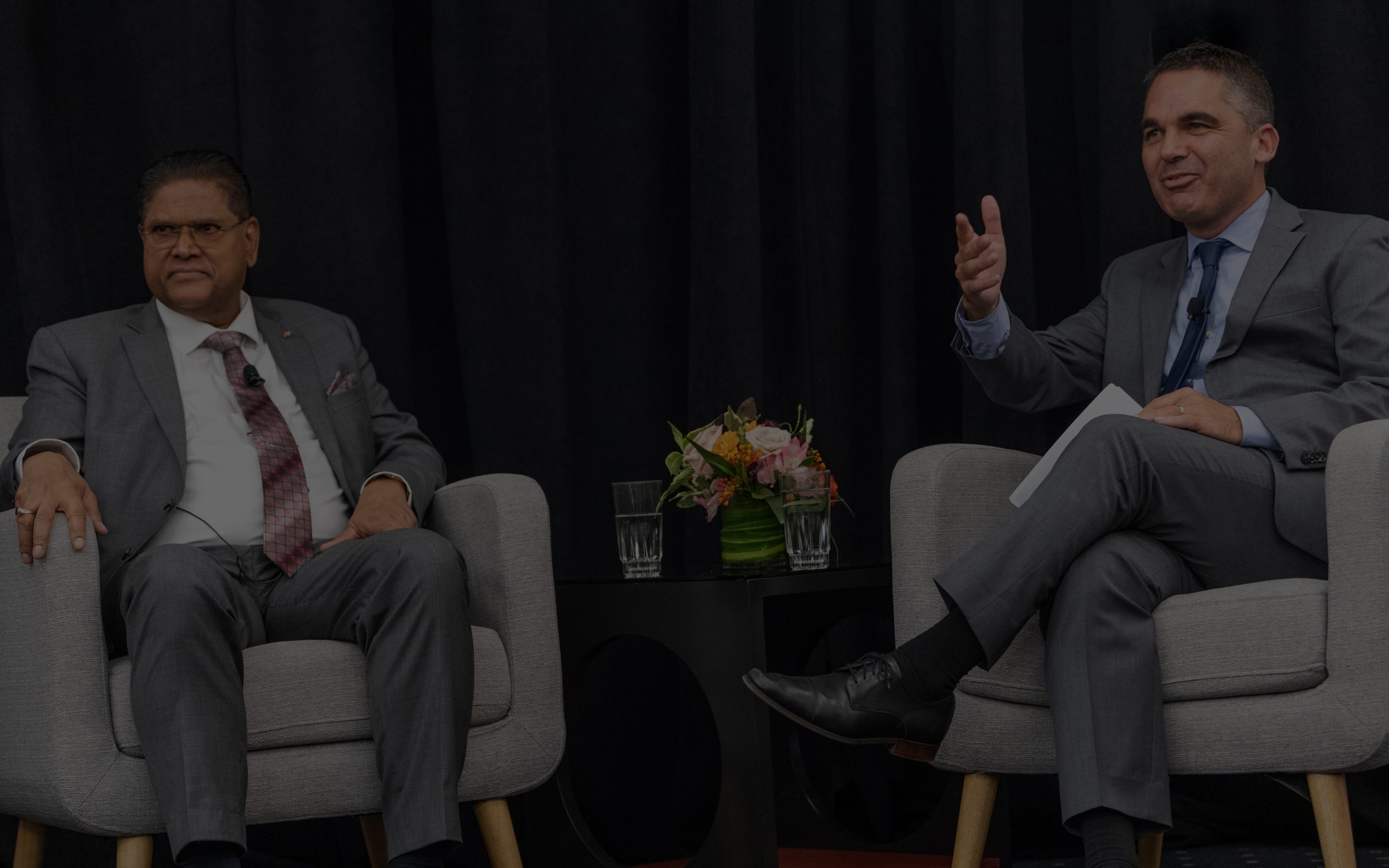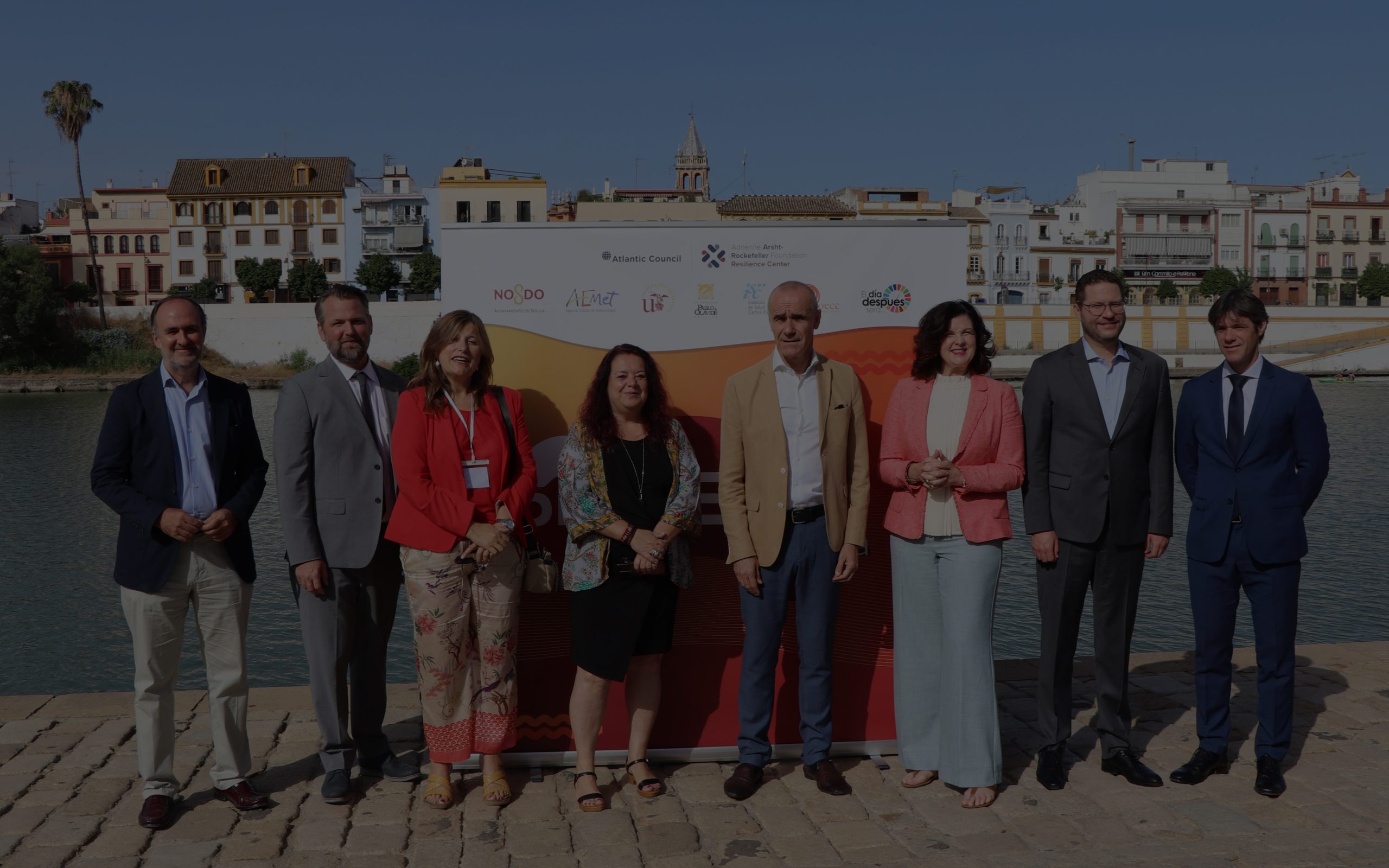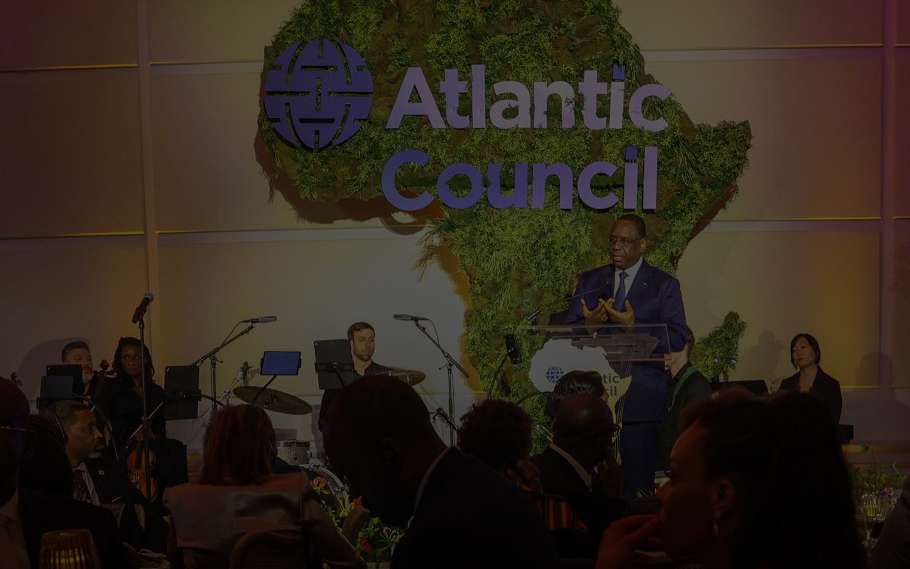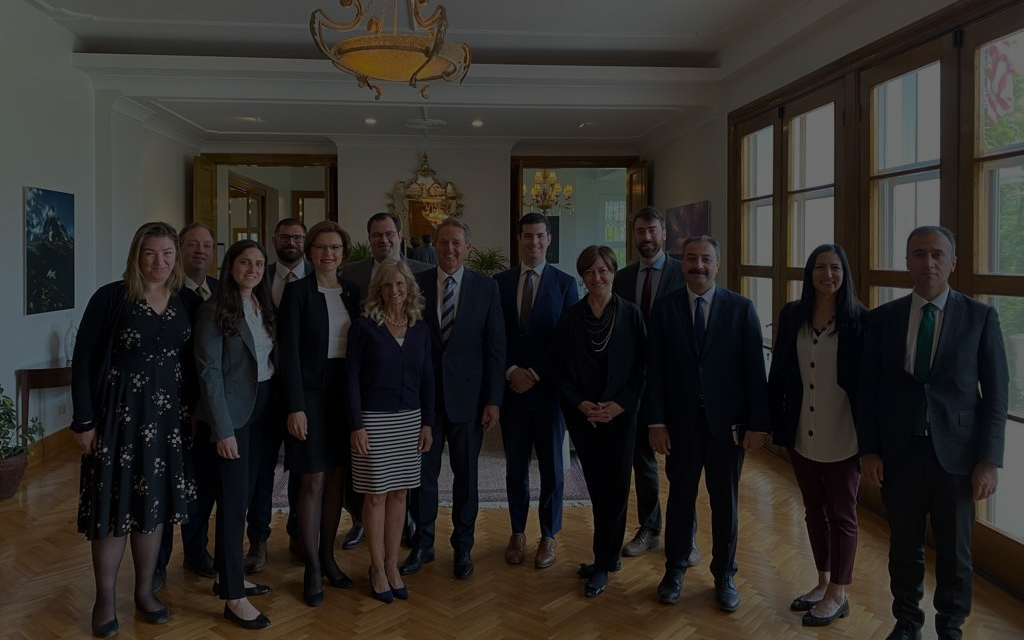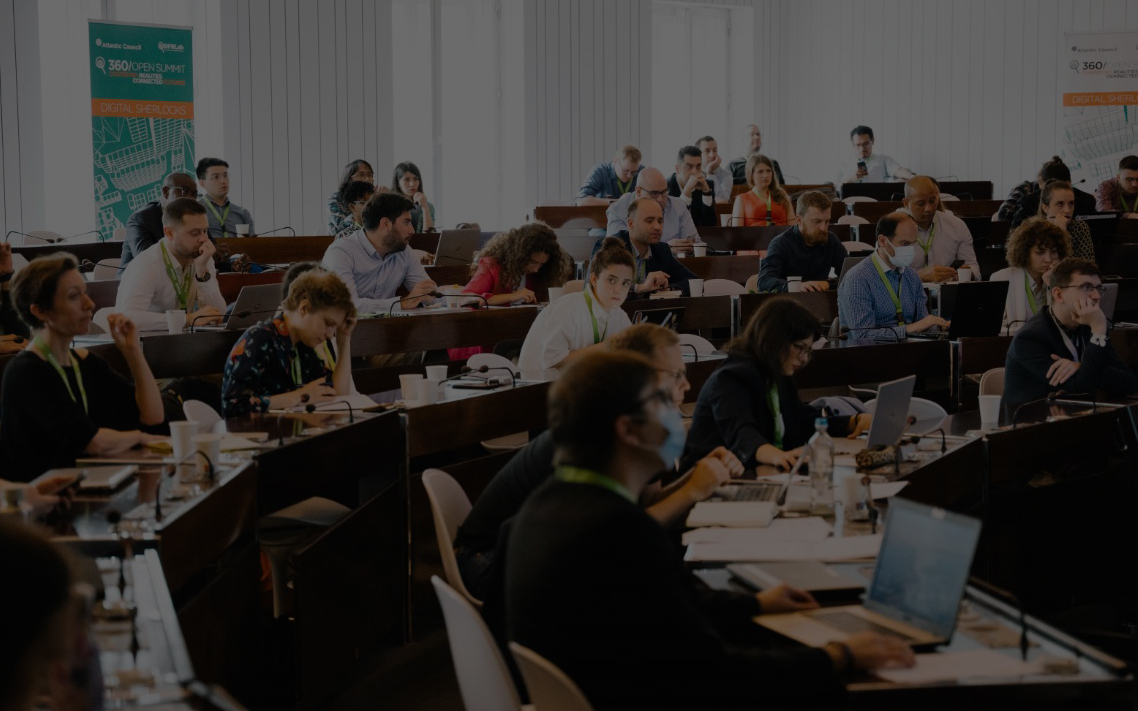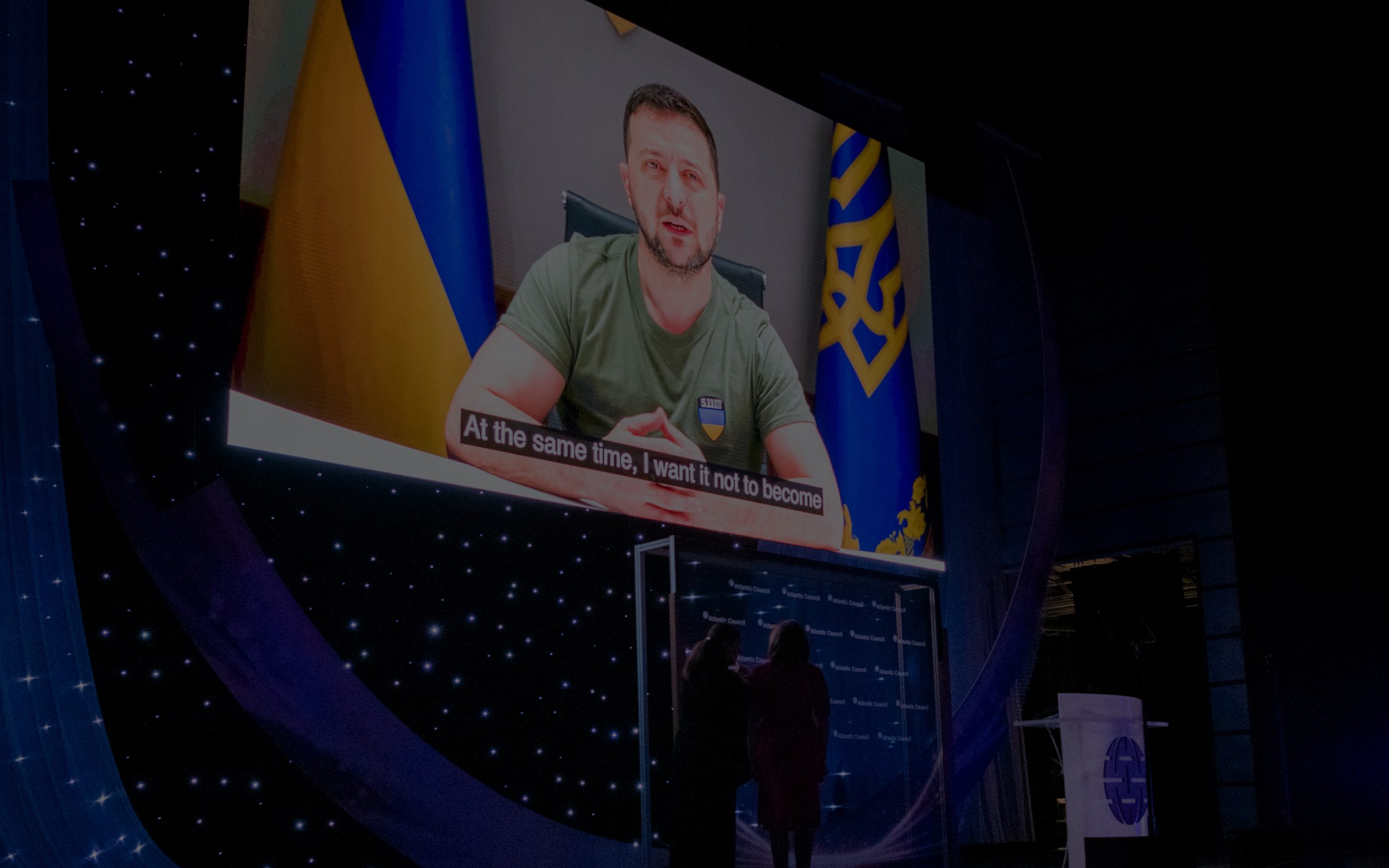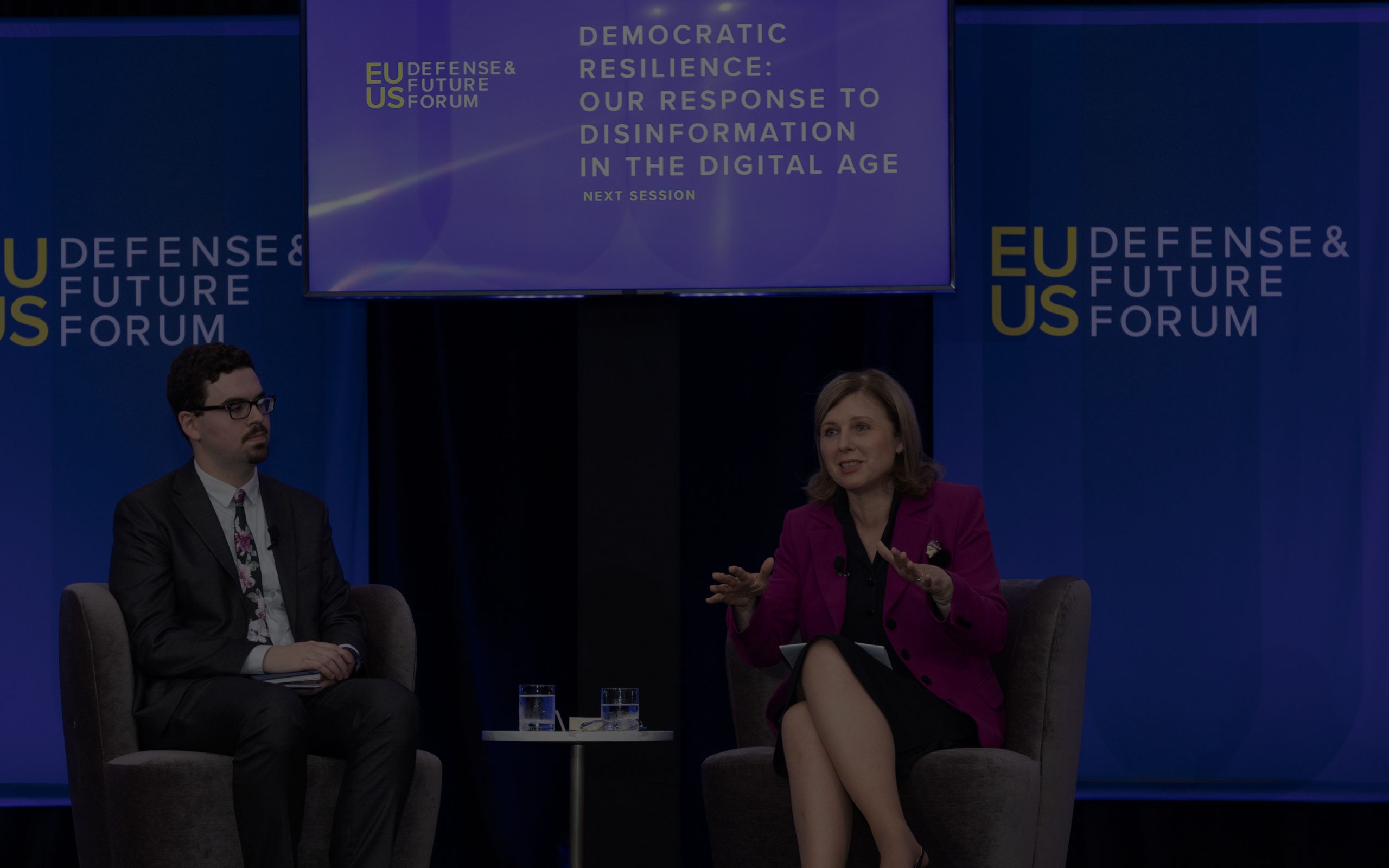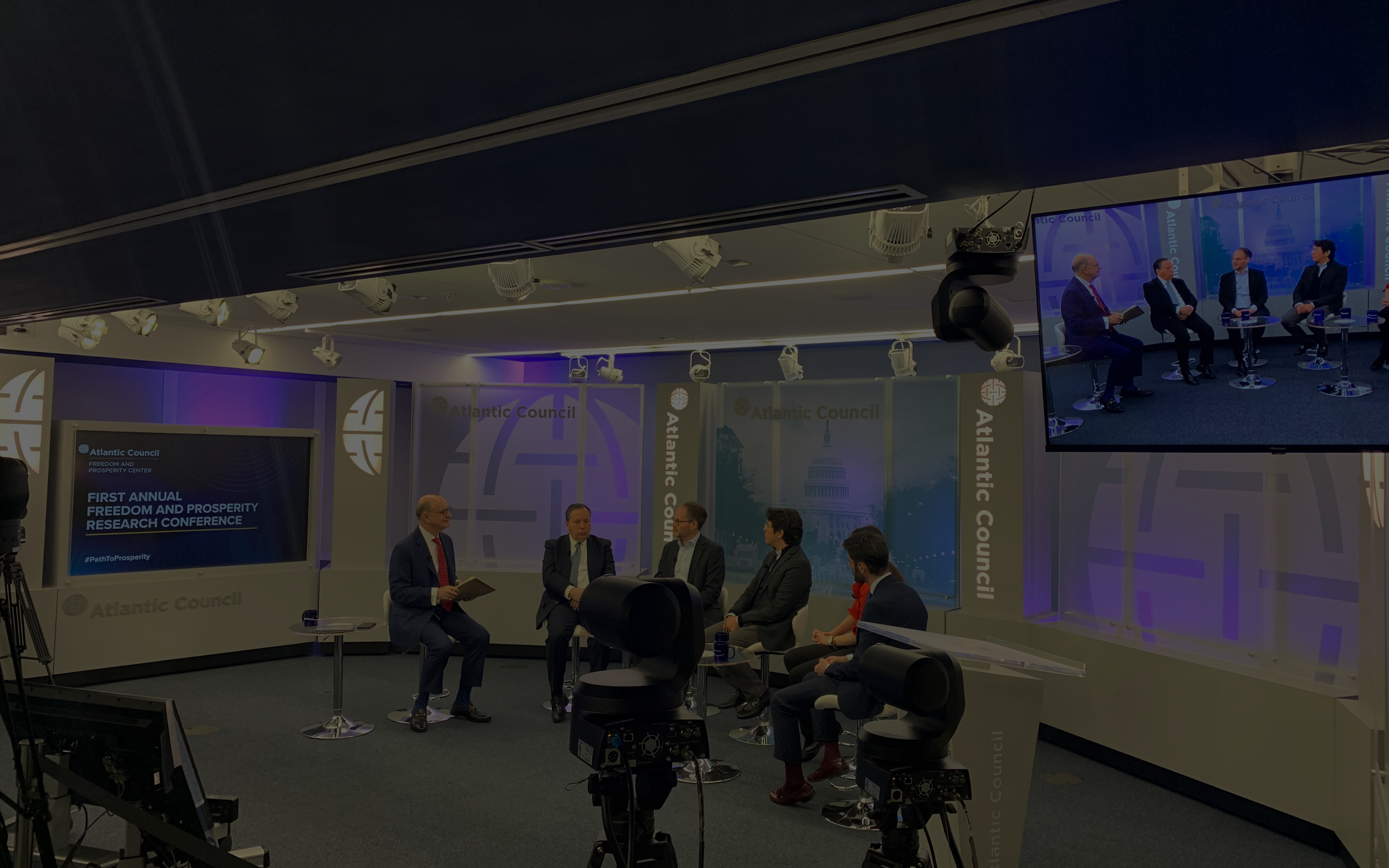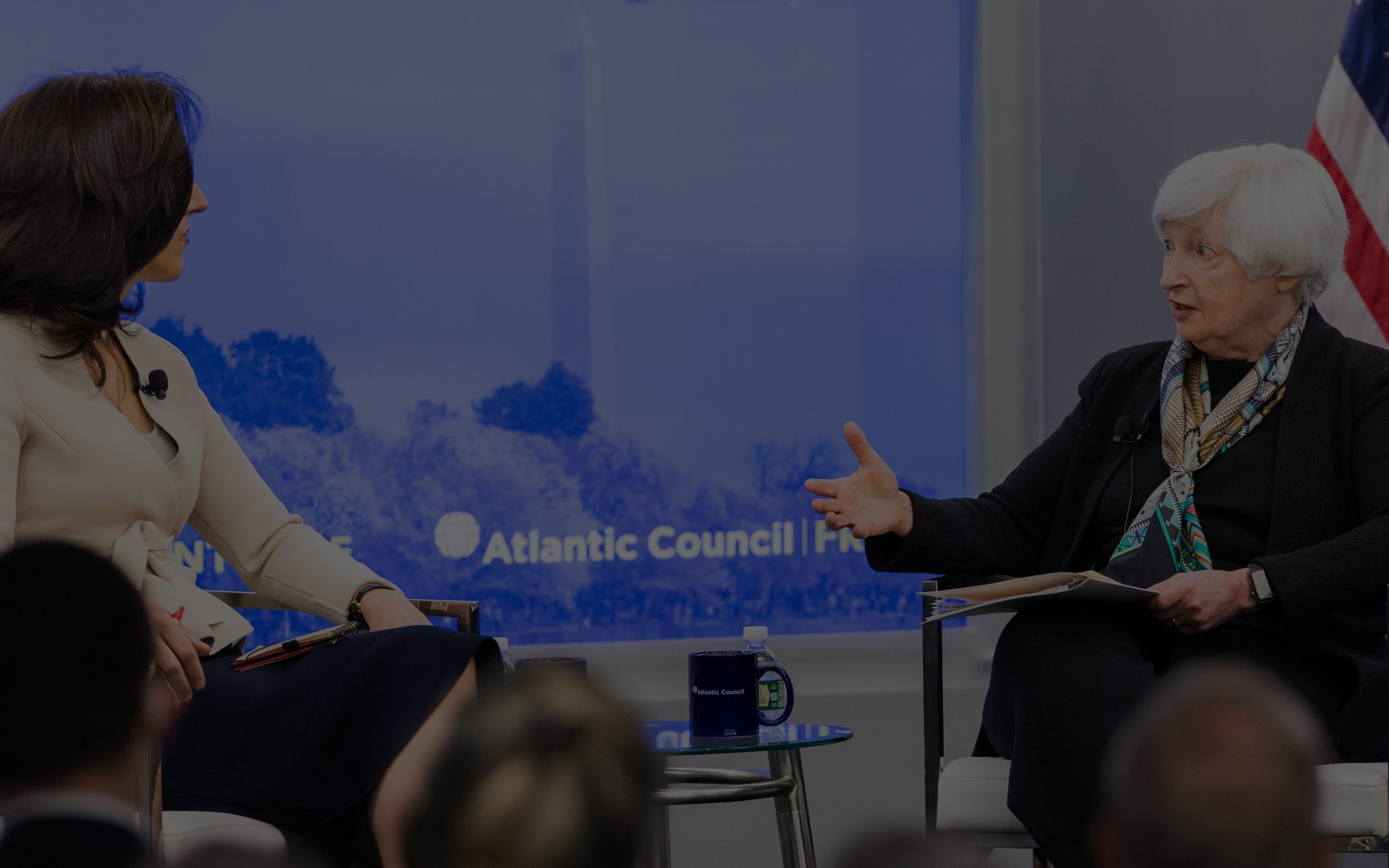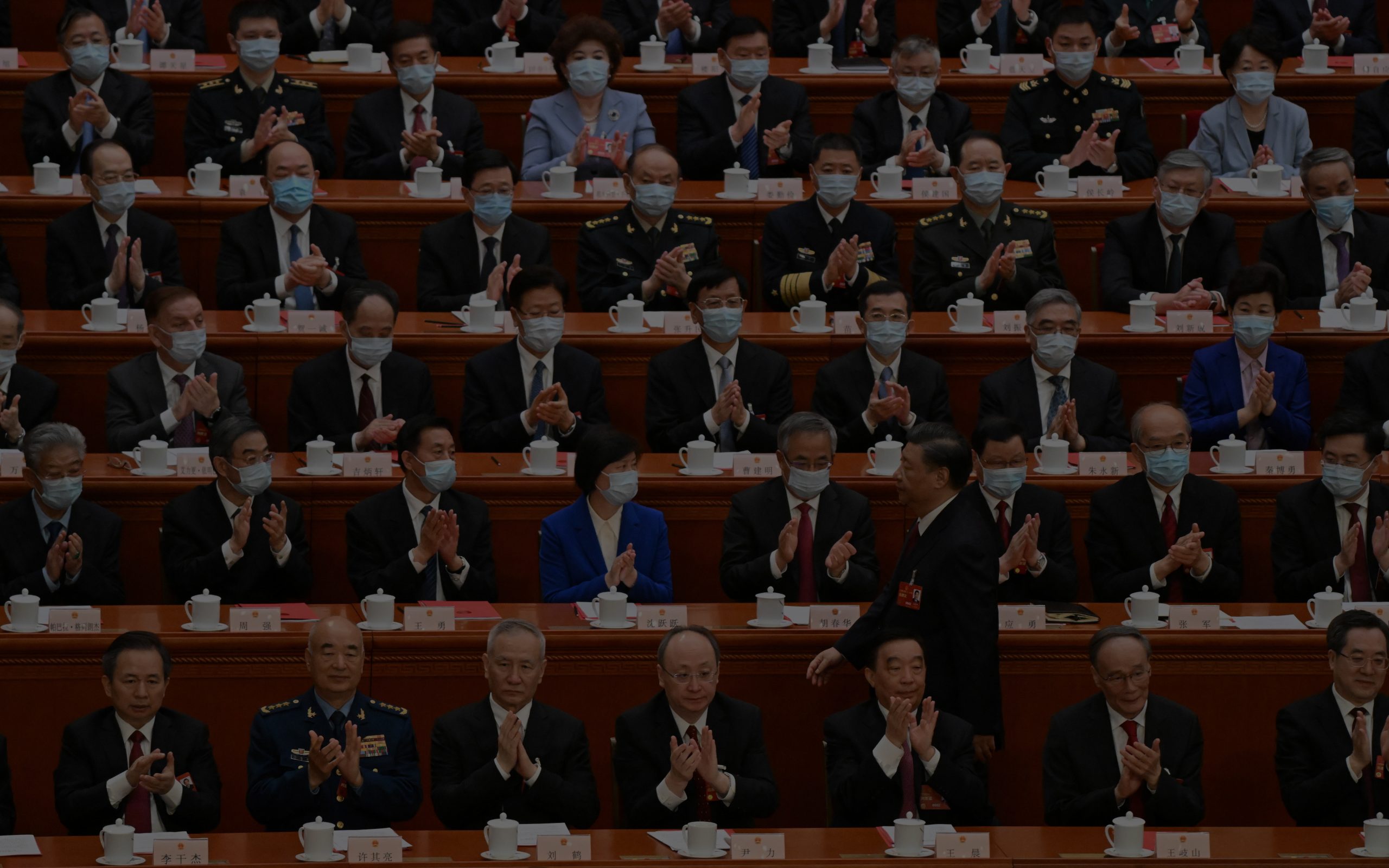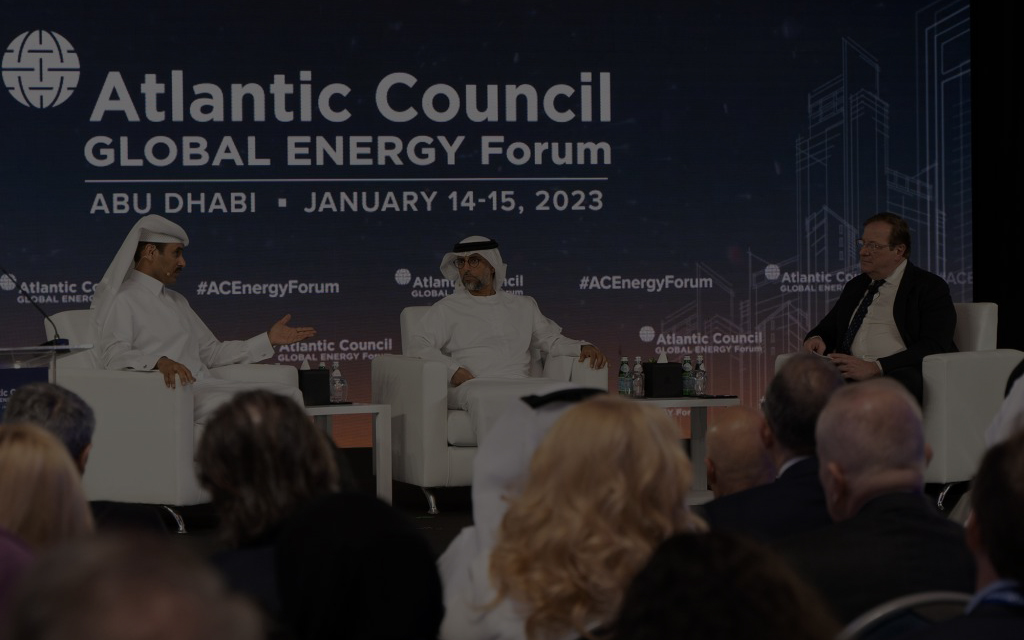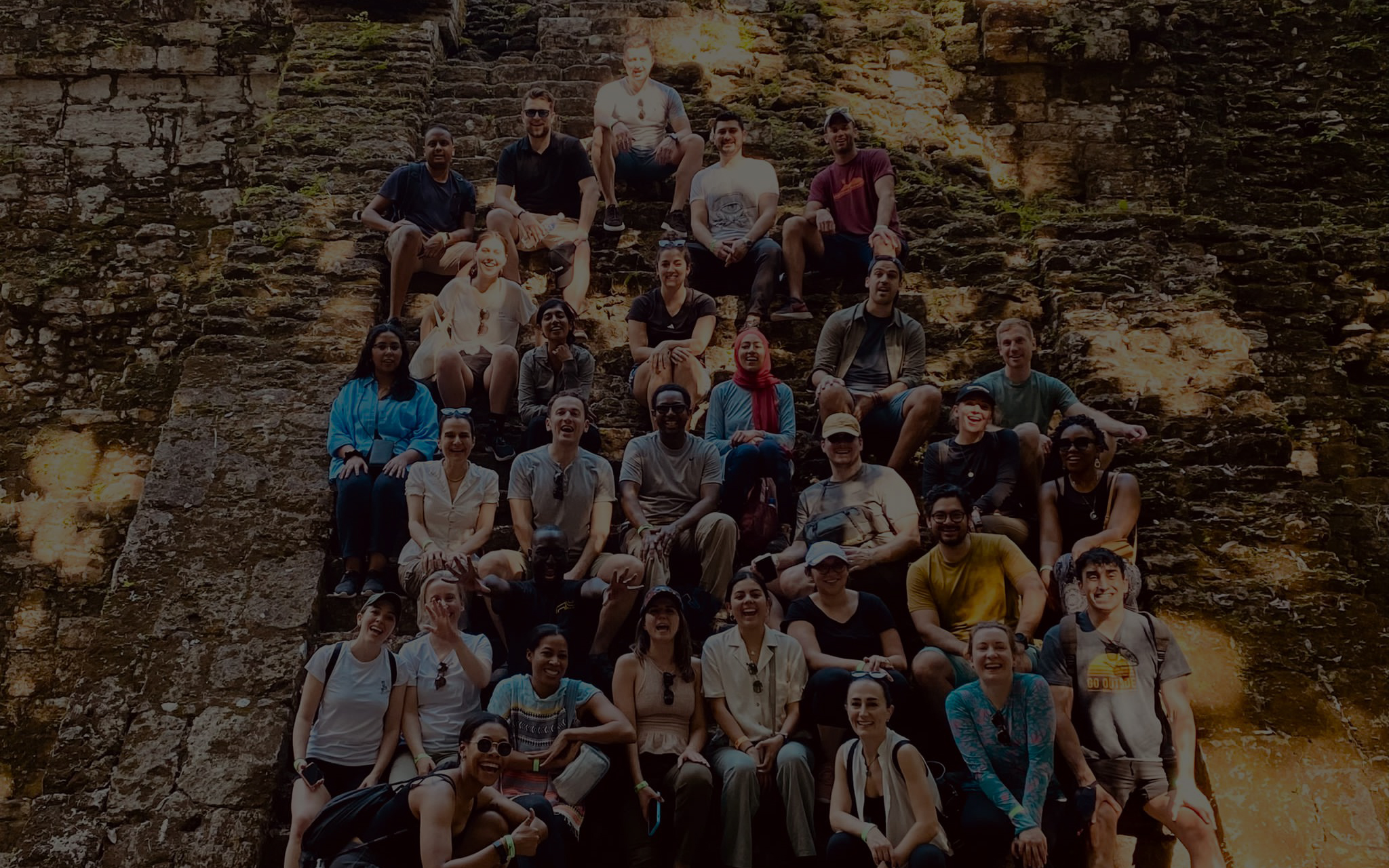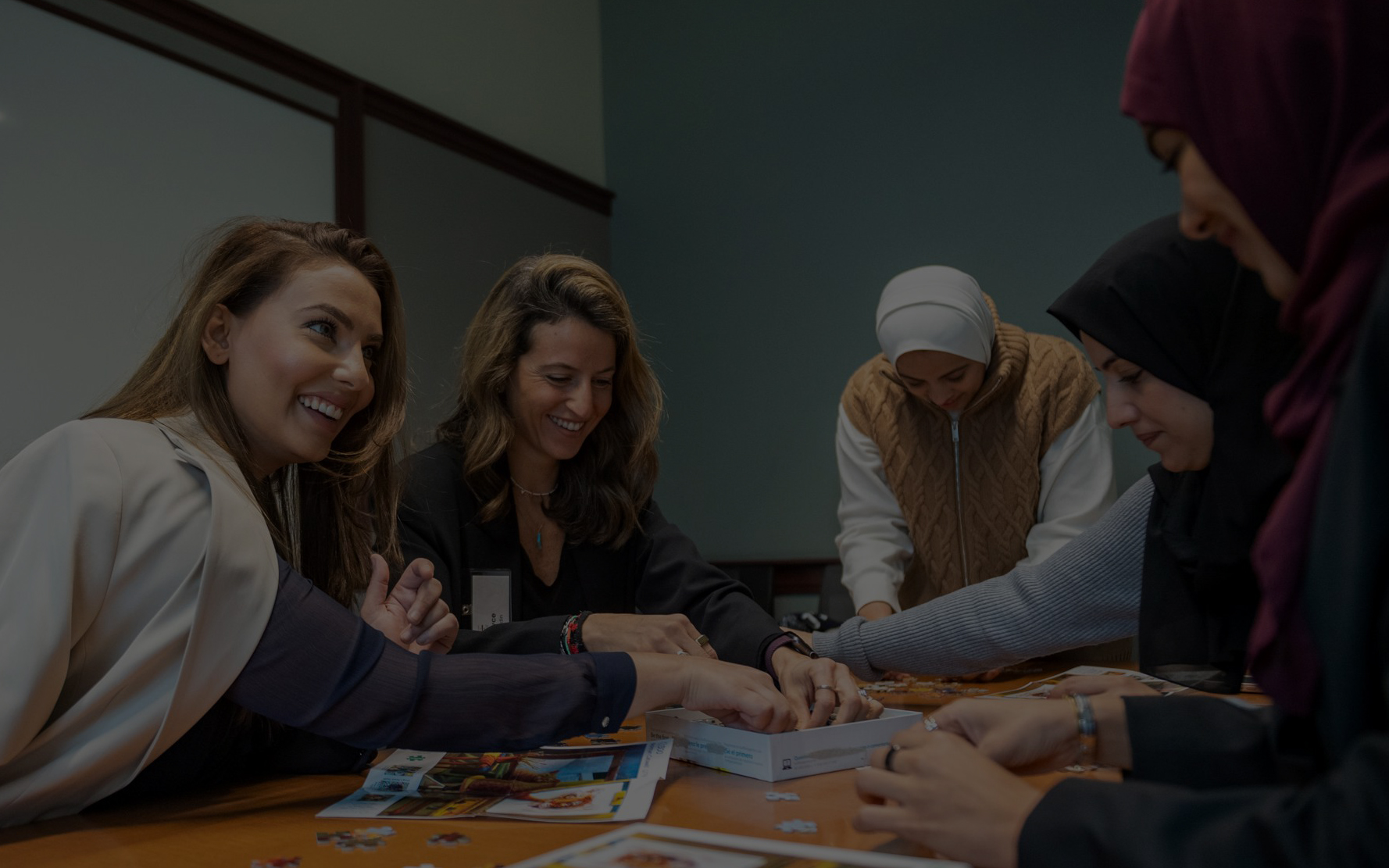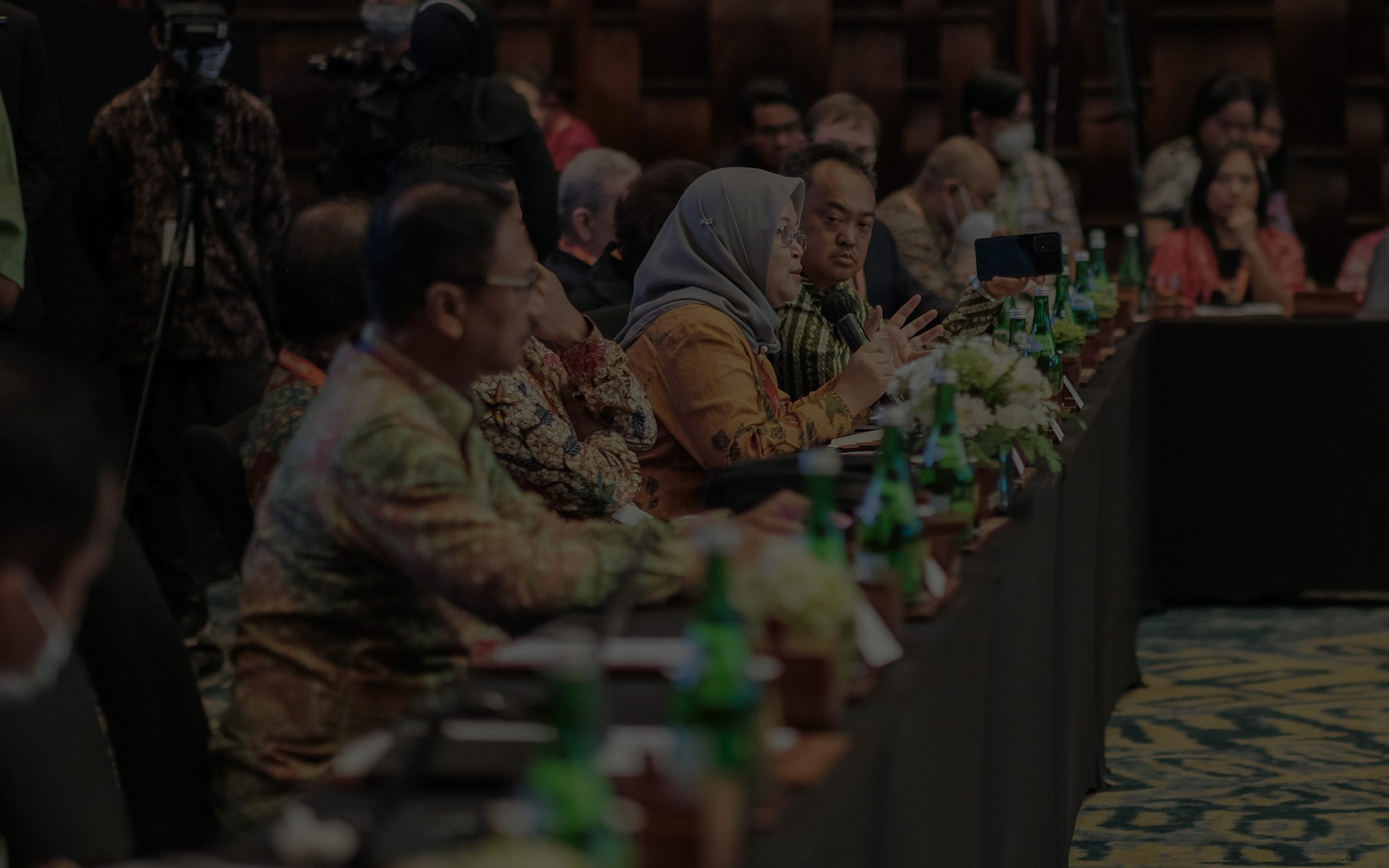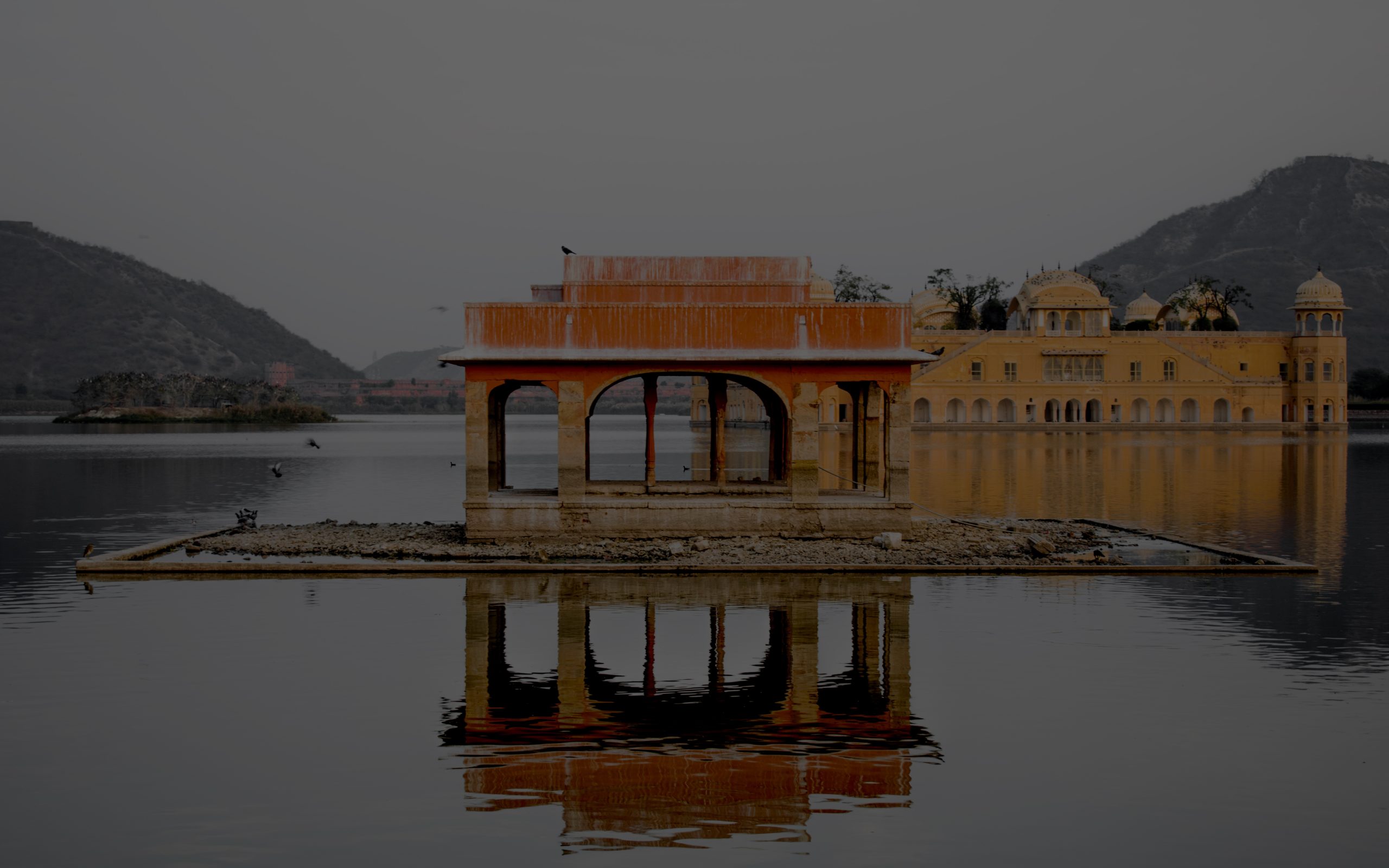2022 was the most successful year in the Atlantic Council’s history when measured by our growth, our impact, and our high-quality work across our sixteen programs and centers.
The nonpartisan Adrienne Arsht Latin America Center (AALAC) broadens understanding of regional transformations while demonstrating why Latin America and the Caribbean matter for the world. The center focuses on pressing political, economic, and social issues that will define the region’s trajectory, proposing constructive, results-oriented solutions to inform public-sector, business, and multilateral action based on a shared vision for a more prosperous, inclusive, and sustainable future. AALAC—home to the premier Caribbean Initiative—builds consensus for action in advancing innovative policy perspectives within select lines of programming: US policy in the Western Hemisphere; US-Colombia ties; Venezuela’s future; Central America’s economic prosperity; Mexico’s role in North America; China’s next steps in the Americas; Brazil’s trajectory; Caribbean development; regional economic development; commercial opportunities; and energy transitions.
In 2022, in line with its mission, the Adrienne Arsht Latin America Center’s Caribbean Initiative built awareness and generated impact to address the withdrawal of correspondent banking relations in the Caribbean—also known as financial de-risking. In early 2022, the Caribbean Initiative launched a report, “Financial de-risking in the Caribbean: The US implications and what needs to be done,” outlining the extent of financial de-risking and recommendations for strengthening financial access across the region, including launching an annual US-Caribbean Banking Forum. In April 2022, the Caribbean Initiative joined the US House Financial Services Committee for a financial access roundtable in Barbados, where the establishment of a US-Caribbean Banking Forum was agreed upon by nine CARICOM heads of government. In August 2022, the Initiative convened the US-Caribbean Banking Forum Organizing Committee to include a wide variety of perspectives and thought leaders who have led the charge on curbing de-risking in the Caribbean. In September 2022, the Caribbean Initiative and Organizing Committee members from the Caribbean Association of Banks and the Financial & International Business Association testified at the US House Financial Services Committee hearing, “When Banks Leave: The Impacts of De-Risking on the Caribbean and Strategies for Ensuring Financial Access.” In October 2022, the Caribbean Initiative and Caribbean Association of Banks convened a private roundtable in Saint Lucia to amplify Caribbean perspectives on strategies and solutions for addressing financial de-risking.
The Adrienne Arsht-Rockefeller Foundation Resilience Center (Arsht-Rock) builds individual and community resilience in the face of climate impacts. We pledge to reach one billion people around the world with resilience solutions to climate change by 2030.
In June 2022, Seville’s mayor, Antonio Muñoz, and Arsht-Rock’s director, Kathy Baughman McLeod, unveiled proMeteo Sevilla. This pioneering heat wave naming and categorization system is the first weather warning system in the world to tie meteorological forecasts to health impacts. One month after launching, proMeteo Sevilla triggered Heat Wave Zoe—the world’s first heat wave to be named in the way we name hurricanes. By naming heat waves, the locally tailored system raises awareness about the dangerous impacts of heat to human health and provides specific guidance so people can take action and protect themselves and their families.
The mission of the Africa Center is to raise African voices and strengthen African nations’ influence in transatlantic dialogue. A preferred destination for African cultural, political, and business leaders who want to create a more authentic African narrative, the center is also a powerful platform for producing better knowledge of Africa and promoting opportunities on the African continent. The center prepares policymakers and investors for the onset of the African Century by supporting dynamic strategic partnerships with African states and multilateral institutions.
On the eve of the 2022 US-Africa Leaders Summit in Washington—the first in eight years—the Africa Center hosted eleven African heads of delegation, including nine presidents and one prime minister, alongside members of Congress and the administration, business leaders, diplomats, and high-profile civil society leaders at a welcome dinner to kick off the White House’s US-Africa Leaders Summit. The dinner “welcomed some of the most influential figures in Africa for important business-oriented conversations on the shared opportunities for African nations and the United States,” said Atlantic Council President and CEO Frederick Kempe. “I am grateful to the many heads of state, policymakers, and executives who joined us. Engagement between the US and our partners in Africa is vital to advancing democracy, security, and prosperity around the globe.”
The Atlantic Council IN TURKEY aims to support transatlantic relations by strengthening dialogue between Turkey and its allies, primarily the United States. In line with the Atlantic Council’s mission of promoting constructive leadership and engagement in international affairs based on the Atlantic community’s central role in meeting global challenges, the center’s goal is to bolster transatlantic engagement with Turkey and its surrounding region through forward-looking research and high-impact, high-level convening. The program spotlights critical issue areas including energy, economics, business relations, migration, defense, and security.
Strengthening transatlantic engagement between the United States, Turkey, and the region is a central component of the Atlantic Council IN TURKEY’s mission. Our center approaches the transatlantic relationship from a long-term, strategic perspective. In line with this goal, one of our center’s projects, the 2021-2022 United States-Turkey Congressional-Parliamentary Fellowship, supported by the US State Department through the US Mission in Turkey, exemplified that spirit by connecting a class of US congressional and Turkish parliamentary staffers and advisors for an in-depth series of lectures, peer-to-peer discussions, and study tours to each country. Fellows gained new perspectives on the full range of issues affecting US-Turkey relations through an eight-month multifaceted virtual curriculum of ten sessions featuring nineteen leading experts and current and former officials from Turkey, the United States, and Europe. In 2022, the program culminated with five-day capstone study trips to Washington, DC, Ankara, and Istanbul, giving fellows the opportunity to connect in person with their peers, meet with officials, and visit cultural and historical landmarks. Our fellows on both sides of the Atlantic emerged from the fellowship with a greater appreciation and understanding of political and foreign policy dynamics in their counterpart country. Investing in emerging and future leaders in the United States and Turkey serves the long-term strength of the alliance.
The Digital Forensic Research Lab (DFRLab)’s mission is to promote facts as a foundation of government for and by people; to protect democratic institutions and norms from those who would undermine them online; to forge digital resilience at a time when humans are more interconnected and have more access to information than at any time in history; and to center human rights and democracy in tech and policy change.
In June 2022, the Digital Forensic Research Lab hosted 360/Open Summit: Contested Realities, Connected Futures at the Square in Brussels, Belgium. This flagship event brought together our global team alongside policymakers and journalists, activists and advocates, and industry representatives for two days of cutting-edge programming both in-person and online. 360/OS is one of the top events of the year for the counter-disinformation community and involved dozens of incredible main stage presentations and discussions; convened activists, tech leaders, and policymakers; and welcomed keynote speeches from US Secretary of State Antony Blinken, Nobel Peace Prize winner Maria Ressa, and US Ambassador to the European Union Mark Gitenstein. In 2022, the DFRLab also hosted over 100 members of its “Digital Sherlocks” training program from all over the world for a parallel track of specialized trainings and networking.
The Eurasia Center’s mission is to promote policies that encourage stability, democratic values, and prosperity in Eurasia. A democratic, prosperous, and stable Eurasia is a core interest for the United States and plays into the Atlantic Council’s focus on great power competition.
On March 15, 2022, the Eurasia Center hosted an online event, “Will Putin go nuclear over Ukraine?” that quickly became the Atlantic Council’s second-most-watched event of the year on YouTube (trailing only a January 6 event on Russia’s endgame in Ukraine). At the time, Russia’s full-scale invasion of Ukraine was just beginning to bog down and some voices in Washington had begun arguing that major additional Western military aid for Ukraine would result in nuclear war, and thus that the US should temper its support. This event cut those faulty arguments down to size. Moderated by Ambassador John Herbst, the discussion made the case that significant US support is far more likely to make Ukraine and Europe more secure; caving to Vladimir Putin’s nuclear threats would only weaken the transatlantic alliance and threaten further instability around the globe. The event, which featured General Wes Clark, defense expert Debra Cagan, and a range of voices from the Scowcroft Center, set the tone for the Eurasia Center’s 2022 focus on advocating for stronger, faster Western security assistance to Ukraine. Led by Ambassador John Herbst, the Eurasia Center continues to push for a more robust Western response to Russia’s 2022 invasion of Ukraine and greater US engagement throughout Eurasia.
The Europe Center conducts research and uses real-time analysis to inform the actions and strategies of key transatlantic decisionmakers in the face of great power competition and a geopolitical rewiring of Europe. The center convenes US and European leaders to promote dialogue and make the case for the US-EU partnership as a key asset for the United States and Europe alike.
In June 2022, the Atlantic Council’s Europe Center, in partnership with the Delegation of the European Union to the United States, hosted the EU-US Defense & Future Forum (EUDFF). The hybrid conference, combining the second iteration of the EU-US Future Forum and the eleventh year of the EU Defense Washington Forum, served as one of the first major convenings of US and EU officials following Russia’s invasion of Ukraine and subsequent shocks to Europe and the West. It was an opportunity to take stock of the EU-US relationship and demonstrate the strength and depth of the transatlantic relationship. The EUDFF convened forty-one speakers for discussions that covered the breadth of the transatlantic relationship, including transatlantic defense, energy, trade, technology, food security, China relations, and more. Over the nearly eleven hours of programming, speakers included nine US government officials and twelve EU officials—including two European Commission vice presidents, the European External Action Service secretary general, the US deputy secretary of state, and the US principal deputy national security advisor.
The Freedom and Prosperity Center aims to increase the well-being of people everywhere and especially the poor and marginalized in developing countries through unbiased, data-based research on the relationship between prosperity and economic, political, and legal freedoms, in support of sound policy choices.
In 2022, the center published its first annual Freedom and Prosperity Indexes that rank 174 countries. The indexes, which will be updated annually, provide tools for policymakers and agents of change in developing countries. The center uses the indexes and supporting data for its own research and makes them available for other researchers. In partnership with the Acton Institute, the center established a research grant program for scholars exploring the relationship between freedom and prosperity. In 2022, over $300,000 was allocated to fifteen scholars from nine countries. This research was highlighted at the center’s first Freedom and Prosperity Research Conference in Washington, DC. The center also has a partnership with the Atlas Network to provide reform grants to changemakers in developing countries. In 2022, the center awarded eight grants to think tanks in eight countries for a total of $200,000.
The GeoEconomics Center produces cutting-edge research and data visualization at the intersection of finance, economics, and foreign policy. The center bridges the divide between these oft-siloed sectors and helps shape a better global economic future for the United States and its allies. The center is organized around three pillars: 1) the Future of Capitalism; 2) The Future of Money; and 3) The Economic Statecraft Initiative.
In April 2022, US Treasury Secretary Janet Yellen came to the Atlantic Council for her first major international economic speech. The secretary chose the GeoEconomics Center because it was leading on the economic statecraft work that was so critical to understanding the Western response to Russia’s invasion of Ukraine and the center had recently launched the Bretton Woods 2.0 project, which was a core theme of her speech. The secretary’s speech has since become known as the “friend-shoring” speech and the “fence-sitters” speech—both issues that continue to shape the work of the center.
The mission of the GeoTech Center is to shape the future of technology and data to advance people, planet, prosperity, and peace. It is working to identify and communicate what is required to enable emerging technologies to enter use widely across the globe for public benefit, while identifying and mitigating potential geopolitical risks. Recent programs have focused on advancing responsible development of artificial intelligence, globally promoting human-centered governance; bridging data divides by identifying what is needed to advance equitable, open access to secure data; increasing the humanitarian-focused expansion of next-gen space-based communications; and enhancing the capacity of governments to use, regulate, and promote a range of emerging technologies.
In November 2022, the GeoTech Center hosted the third in-person workshop of the AI Connect program, which convened participants from across Eastern Europe in Prague, Czechia to discuss responsible artificial intelligence (AI) policy. The AI Connect program is funded through a collaborative grant with the US Department of State’s Bureau of Cyberspace and Digital Policy and aims to empower low- and middle-income countries to participate in global, multi-stakeholder conversations on the responsible use of AI. The Prague workshop furthered this goal by educating participants about existing AI policy discussions in Eastern Europe, connecting them with relevant leaders in the public and private sectors—including representatives from Microsoft, the White House Office of Science and Technology Policy, and the Czech government—and providing a forum to share best practices, experiences, and opportunities with each other.
The Global China Hub’s mission is to research and devise allied solutions to the greatest global challenges posed by China’s rise, leveraging and amplifying the Atlantic Council’s work on China across its fifteen other programs and centers. In doing so, the Hub capitalizes on the Council’s extensive global network and unique capacity to ascertain “ground truth” on China’s impact and galvanize creative policy solutions.
In 2022, the Global China Hub produced a range of impactful programming and publications around China’s 20th Party Congress—the most important event on China’s political calendar, held every five years. In doing so, the Hub executed its mission to leverage China expertise across the Atlantic Council to deliver insights on the implications of Congress outcomes across the political, security, economic, tech, and climate domains. This programming included a public event launching the report “What Xi Jinping’s third term means for the world,” and featuring a panel of China experts from around the world discussing the consequences of Xi’s tightened grip on power. A multimedia video product featuring China watchers across the Council was also complemented by a series of quick-reaction publications that shaped the policy conversation surrounding the Party Congress. The Hub also published jointly with the Scowcroft Center an issue brief, “An allied strategy for China after the 20th Party Congress,” which proposed a path forward for US and allied policy toward China as relations grow more tense. The Hub then led private discussions with a range of US and allied government decisionmakers, employing these research products to address takeaways from the Party Congress and potential policy solutions going forward.
The Global Energy Center promotes energy security by working alongside government, industry, civil society, and public stakeholders to devise pragmatic solutions to the geopolitical, sustainability, and economic challenges of the changing global energy landscape. The center’s work focuses on three crosscutting themes: energy security, geopolitics, and markets; understanding and managing the energy transition; and climate change and advanced energy.
As energy systems advance toward low-cost, high-efficiency, low-emissions energy, they also grow increasingly dependent on digital technologies. While this digital transformation enables greater access to energy and improved sustainability, it also creates new vulnerabilities to cyberattacks, of which there are abundant domestic and international examples from recent years. To ensure this ongoing threat to the energy sector is addressed, the Global Energy Center led the formation of the Atlantic Council Task Force on Cybersecurity and the Energy Transition to develop a cybersecurity framework designed to protect US energy infrastructure—and, by extension, national security—against cyberattacks. Former Secretary of the US Department of Homeland Security Michael Chertoff and former General Wesley Clark served as co-chairmen of the task force, which produced a report, “Securing the Energy Transition against Cyber Threats,” to recommend a suite of key actions that the government can take to shore up the US energy sector against future cyber threats.
For sixty years, the Atlantic Council has convened global leaders to address the world’s most pressing challenges. As a central pillar of this legacy, the Millennium Leadership Program (MLP) aims to connect and empower next-generation international changemakers who will shape the twenty-first century. Currently, the MLP comprises three elements: the Millennium Fellowship, the Young Global Professionals Program, and the Climate Leadership Program. Through our programs, global professionals sharpen their leadership abilities, increase their capacity for meaningful impact, and build community.
The Study Tour experience provides Millennium Fellows with an opportunity to travel to the frontlines of a relevant local issue as a micro exploration of global macro trends. In May 2022, the 2021 fellows traveled to Israel and Palestine for nearly two weeks of leadership development, historical education, political and policy meetings, and cultural immersion. Programming included meetings with Israeli Knesset members, Palestinian entrepreneurs, researchers and activists, and members of minority communities to deepen fellows’ regional understanding and offer them diversified perspectives on the challenges faced by the region. The tour was an unequivocal success, with fellows describing the trip as a once-in-a-lifetime experience that deepened their regional understanding as well as gave them greater insight into themselves as leaders.
As the Middle East and North Africa (MENA) region continues to undergo significant political and socioeconomic changes, the Rafik Hariri Center and Middle East Programs are leading the way in providing a forum for informing and galvanizing the transatlantic community to shape a stable and prosperous region. The center has been at the vanguard of MENA current affairs, policies, and shifts for more than a decade. The center works in, with, and on the MENA region, amplifying regional voices and connecting regional stakeholders to their counterparts in the US and Europe. The mission is to promote peace and security and unlock the region’s economic and human potential through the ideas we publish, the solutions we generate, and the communities we influence.
The WIn (Women Innovators) Fellowship was launched by the empowerME initiative of the Rafik Hariri Center and Middle East Programs in March 2022 to support women entrepreneurs in building leadership and executive capacity and scaling their startups to new heights. The goals of the fellowship are to (1) accelerate the leadership and executive skills of women entrepreneurs and provide them with an unparalleled network of mentors, business executives, and policymakers, (2) expose US policymakers, scholars, and the business community to a unique and direct perspective on women’s opportunities and challenges in the select countries, and (3) develop a top-tier network of WIn fellows across the Middle East region who can support one another and be ambassadors for women’s economic participation. The unique collaboration between the Atlantic Council and Georgetown University delivers a year-long program that includes a tailored executive education program by Georgetown University, mentoring and networking opportunities with leading US and MENA experts and business executives, and workshops with leading experts to advance government and business policies that increase women’s economic participation. The program includes a fully sponsored trip to the United States for selected participants for leadership training at Georgetown and meetings with US businesses and government leaders. The inaugural program ran from March 2022 to March 2023 and enabled thirty-three Saudi women entrepreneurs to enhance their networks, gain leadership and executive skills, and develop US-Saudi people-to-people ties. The Atlantic Council’s empowerME Initiative leads the WIn Fellowship in cooperation with Georgetown University’s McDonough School of Business with support for the Saudi chapter from the US Embassy in Riyadh, UPS, and PepsiCo. The WIn Fellowship will expand next year to the Kingdom of Bahrain, the United Arab Emirates, and other MENA countries in the coming years.
The Scowcroft Center for Strategy and Security works to develop sustainable, nonpartisan strategies to address the most important security challenges facing the United States and its allies and partners. The center honors the legacy of service of General Brent Scowcroft, including his ethos of nonpartisan commitment to the cause of security, support for US leadership in cooperation with allies and partners, and dedication to the mentorship of the next generation of leaders.
In 2022, the Scowcroft Center executed its mission by leveraging its core competencies of strategy, alliances, and defense. The center has been at the forefront of the Council’s response to the war in Ukraine, facilitating cross-Council coordination on this issue and helping make the case for and advising on Sweden and Finland entering NATO, deterring Putin’s nuclear threats, adapting NATO’s force posture in Europe, and developing a long-haul strategy for the future of Ukraine. The center directly shaped key US and allied strategy documents, including through private meetings with senior officials on the National Security Strategy, National Defense Strategy, and NATO’s Strategic Concept, as well as hosting the rollout of the Biden administration’s Nuclear Posture Review. In the Indo-Pacific, our work on security in the Taiwan Strait made international news and we executed several reports for the Department of Defense. The center also advanced global leadership on food security by hosting the inaugural Global Food Security Forum, a major undertaking and official G20 sideline event in Bali, Indonesia.
The South Asia Center (SAC) serves as the Atlantic Council’s focal point for work on greater South Asia as well as relations between these countries, the neighboring regions, Europe, and the United States. It seeks to foster partnerships with key institutions in the region to establish itself as a forum for dialogue between decisionmakers in South Asia, the United States, and NATO. These deliberations cover internal and external security, governance, trade, economic development, education, and other issues. The center remains committed to working with stakeholders from the region itself, in addition to partners and experts in the United States and Europe, to offer comprehensive analyses and recommendations for policymakers.
2022 saw the South Asia Center continue growing as both a leading voice on constructive US-South Asia relations and as a forum for regional stakeholders to discuss key issues. Amid the complete freeze in Washington of attention toward Afghanistan, SAC remained a leader in platforming local voices as well as advocating for US support for Afghans, exemplified by the reports “Afghanistan under the Taliban: Regional recalibrations, challenges, and ways forward” by Hameed Hakimi and “Supporting Afghan refugees: A case for cultural sensitivity and humility in resettlement practices” by Halima Ahmadi-Montecalvo, Amanda Terry, and Belquis Ahmadi. Our Bangladesh portfolio continued to grow, galvanizing focus on the potential of the US-Bangladesh partnership. Highlights included webinars on the climate crisis and the Rohingya refugee crisis. Pivoting to India, our US-India Trade Initiative (USITI) elucidated pragmatic strategies for US-India trade and commerce, with a focus on digital trade. In April, we hosted Finance Minister Nirmala Sitharaman to discuss India’s economic recovery and growth outlook. In June, the USITI’s US-India Digital Economy Task Force published the flagship report, “The case for a US-India digital handshake.” The Pakistan Initiative in 2022 saw its strongest year of growth, supporting deeper US-Pakistan relations with a focus on trade, commerce, and tech. Highlights included hosting former Finance Minister Miftah Ismail, as well as a report on the state of Pakistan’s startup and technology sector. We closed out the year with a conference on the future of the US-Pakistan relationship and an #ACFrontPage event featuring Foreign Minister Bilawal Bhutto Zardari. Our blog SouthAsiaSource (SAS) has grown to new heights, platforming diverse perspectives on issues such as economics and trade, conflict, counterterrorism, and human rights. SAS brings in millions of views per year, with 2022 highlights including a conversation with Lotay Tshering, prime minister of Bhutan, as well as the webinar “Afghanistan and the region: One year after the fall of Kabul.”

